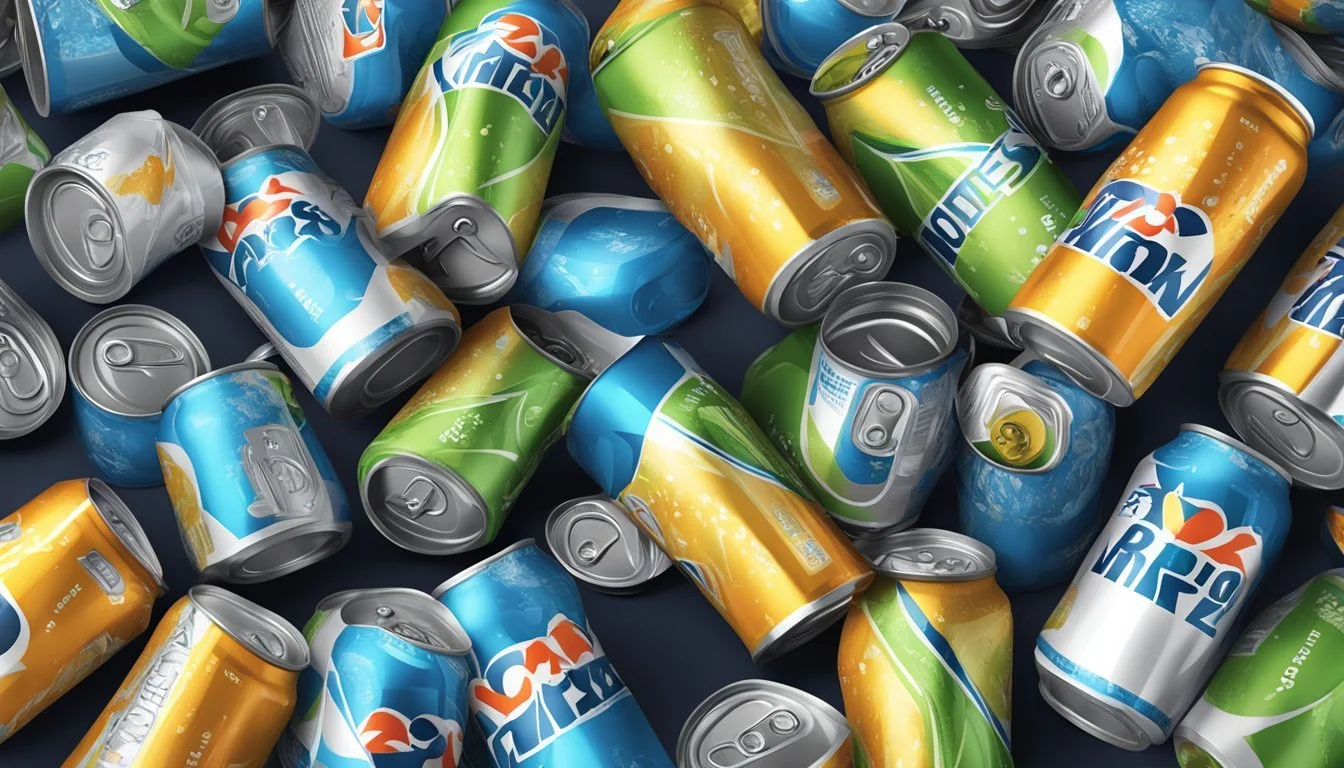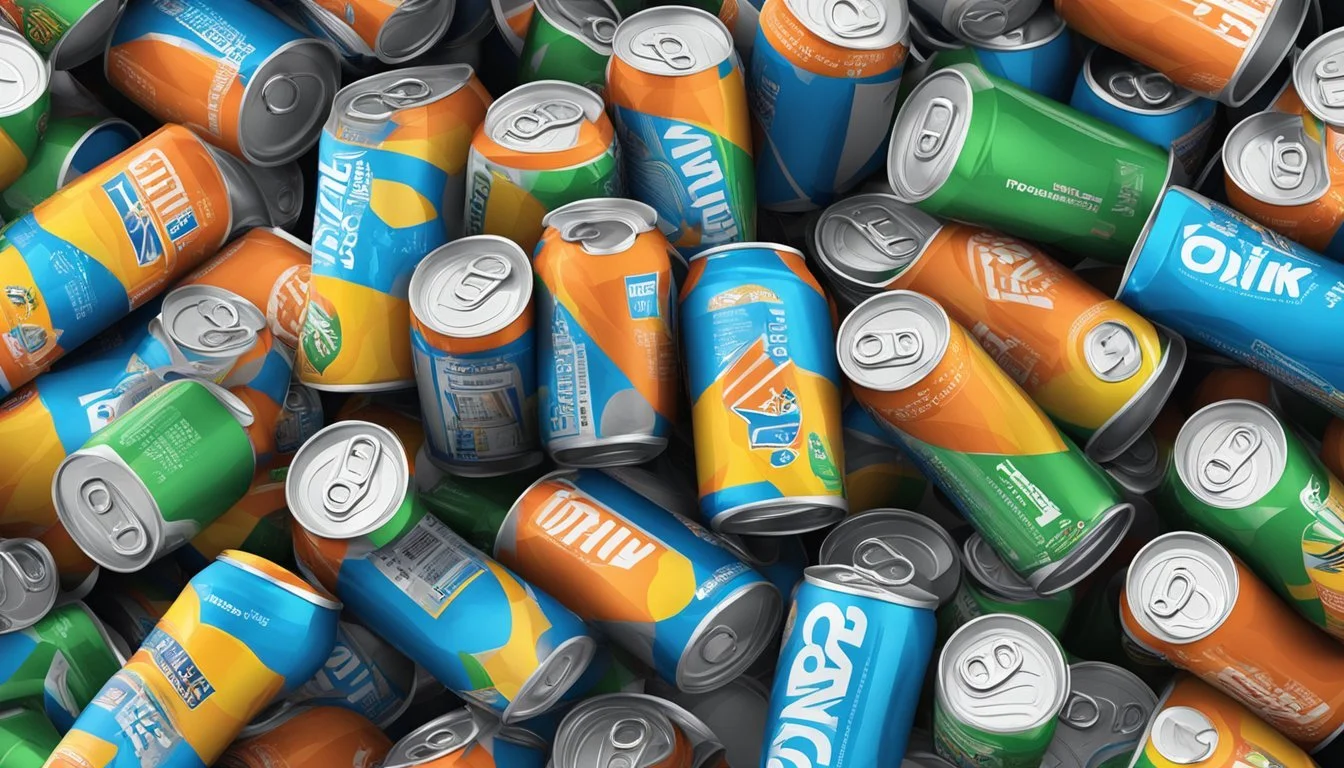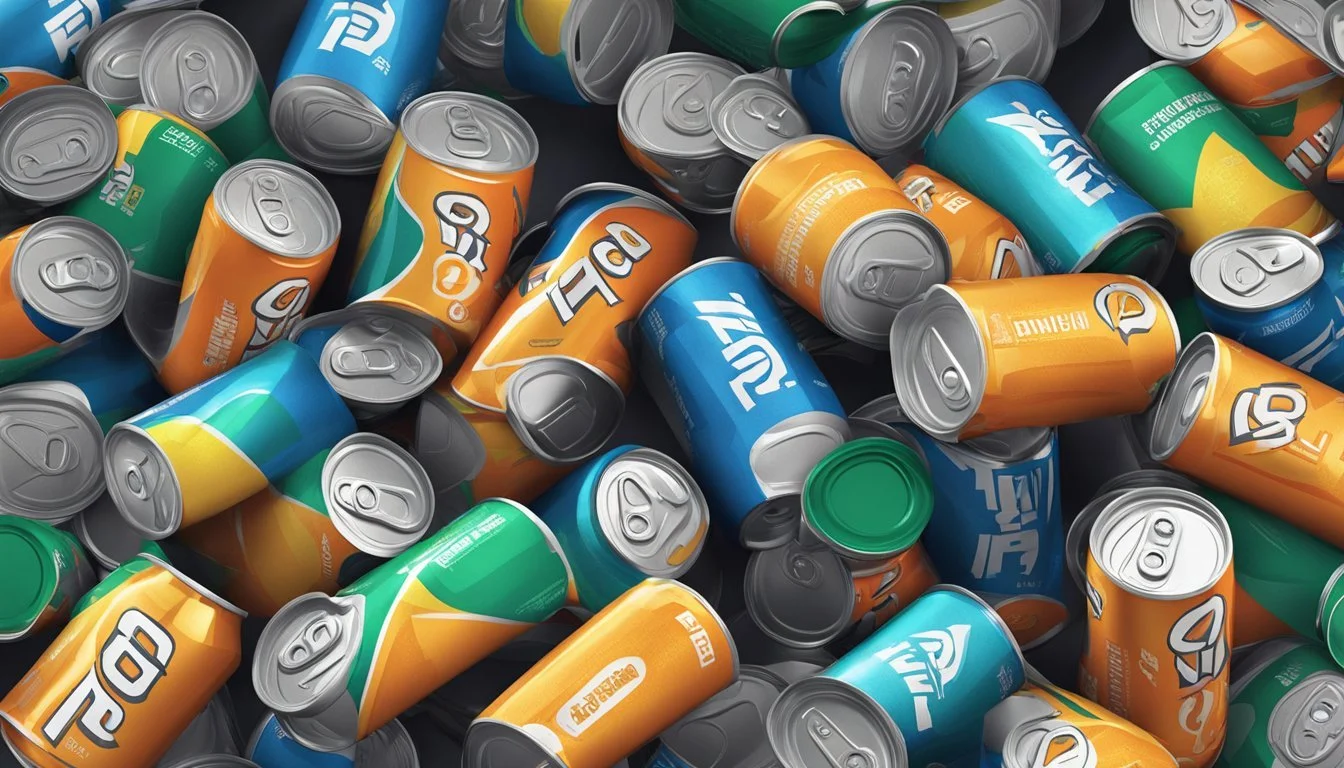How Many Cans of NOS Energy Drink Per Day Is Too Much?
Understanding Safe Consumption Limits
Determining the safe consumption levels of energy drinks like NOS is crucial due to the potential health risks associated with excessive caffeine and sugar intake. A single 16 fl. oz can of NOS Energy Drink contains 160mg of caffeine, which is within the moderate range when compared to other energy drink brands. However, it is important to consider the recommended daily caffeine limits set by health authorities to maintain a healthy balance.
Consumption guidelines suggest that individuals should limit their caffeine intake to about 400mg per day to avoid negative side effects. This implies that drinking more than two cans of NOS could push an individual beyond these recommended limits. Moreover, other sources of caffeine throughout the day, such as coffee, tea, or chocolate, must be accounted for to ensure total daily caffeine consumption remains within a safe range.
In addition to caffeine, the sugar content in NOS Energy Drinks, at 27 grams per 8 oz., also raises concerns about the increased risk of diabetes and other health issues. Dietary guidelines recommend limiting added sugars to reduce these risks, which indicates that the high sugar content in NOS should be carefully considered when determining how many cans to consume in a day.
Understanding Energy Drinks
Energy drinks like NOS provide stimulation through caffeine and other ingredients but understanding their composition and comparing them to other brands, as well as recognizing the regulatory standards, is essential for informed consumption.
Composition of NOS Energy Drinks
NOS Energy Drinks deliver a quick boost of energy mainly due to caffeine, which amounts to 160 milligrams per 16-ounce can. Other ingredients include taurine, an important amino acid, and guarana, a natural source of caffeine. While the beverage offers nutrients, one must be mindful of its sugar content, which is substantially high, with added sugars potentially reaching up to 47 grams per can.
Comparison to Other Energy Drinks
When comparing NOS to other energy drinks in the market, it contains a moderate level of caffeine; others may have as low as 50 milligrams or as high as 300 milligrams of caffeine per can. NOS contains ingredients like taurine and guarana, similar to many brands, but also often includes ginseng and green tea extracts, which may differentiate it nutritionally from competitors. Notably, NOS opts for sucralose, a no-calorie sweetener, in some of its products to lessen sugar intake.
Regulation of Energy Drink Market
The American Academy of Pediatrics advises against energy drinks for children, and though the FDA regulates the caffeine content, remarks on sugar level regulations are less stringent. The Nutrition Facts label provides important nutritional information, assisting consumers in adhering to the recommended limits. It is crucial for consumers to use the information from the Nutritional Facts panel to make informed decisions about their intake of NOS Energy Drinks.
Caffeine Content and Health
When considering how many cans of NOS energy drink one can safely consume, it is critical to understand the caffeine content and its impact on health. This section will examine caffeine in comparison to other stimulants, its health effects, and FDA recommendations on caffeine intake.
Caffeine vs Other Stimulants
Caffeine is the predominant stimulant found in NOS energy drinks, with a 16-ounce can containing 160 milligrams and a 24-ounce serving offering 240 milligrams. While similar in effect to other stimulants, caffeine is distinguished by its ability to increase alertness without the amphetamine-like side effects that others may induce.
Health Effects of Caffeine
Cardiovascular Health
Regular consumption of caffeine may lead to elevated blood pressure, though the effect can vary among individuals. Those with existing high blood pressure or a predisposition to cardiac issues should approach caffeine intake cautiously. Conversely, caffeine contains no amino acids, minerals, or other nutritional benefits.
Potential Risks
High doses of caffeine, possibly stemming from multiple servings of energy drinks, can lead to a caffeine overdose. Symptoms might include jitteriness, cardiac arrest, and in extreme cases, death. Building a caffeine tolerance may lead some to increase their intake dangerously.
FDA Recommendations on Caffeine Intake
The US Food and Drug Administration (FDA) advises that adults should limit their caffeine consumption to no more than 400 milligrams per day. To put this into context, one would reach this limit with just two and a half 16-ounce cans of NOS energy drink. Nutritionists and health organizations like the Mayo Clinic emphasize the importance of adhering to these guidelines for maintaining optimal health and preventing the adverse effects of excessive caffeine.
Sugars and Sweeteners
The consumption of sugars and sweeteners is a pivotal aspect when evaluating the safety of energy drinks like NOS. This section will provide a detailed examination of the sugar content commonly found in these beverages, as well as discuss the implications of artificial sweeteners that serve as alternatives.
Sugar Content in Energy Drinks
A single can of NOS Energy Drink contains 54 grams of sugar, which notably exceeds the recommended daily sugar intake of 24 grams for women and 36 grams for men. This sugar primarily takes the form of sucrose or high fructose corn syrup, both of which can contribute to conditions such as type 2 diabetes if consumed in excess. It is important for individuals, especially those who are diabetic or pre-diabetic, to monitor their sugar intake closely.
NOS Energy Drink (16 fl.oz)
Component Amount Calories 210 Total Carbohydrates 54g Sugar (Added) 54g
Sustained high sugar consumption can impact blood glucose levels, potentially leading to hyperglycemia or, alternatively, result in a rapid crash after consumption.
Artificial Sweeteners and Alternatives
As an alternative to sugar, some energy drinks contain artificial sweeteners. These are used to provide a sweet taste without the added calories or the blood sugar spike associated with sugar. Common artificial sweeteners include aspartame, sucralose, and acesulfame potassium. The consumption of artificial sweeteners is generally considered safe for the general population but remains a subject of debate in the context of long-term health implications, including potential effects on gut health and insulin response.
While artificial sweeteners do not contribute calories, it is imperative to note that they may still pose a risk for those with certain conditions such as diabetes, and excessive intake should be avoided. Consequently, individuals opting for alternatives to sugar should also be conscious of the potential effects of artificial sweeteners.
Health Risks and Safety
Consuming NOS energy drink, or any energy drink, in moderation is crucial to avoid negative health effects. Excessive intake can lead to serious health concerns.
Potential for Developing Health Issues
Health: Regular consumption of NOS energy drinks can contribute to health issues such as insomnia, anxiety, and heart disease. These drinks typically contain high levels of caffeine and sugar that, when ingested in large amounts, can impair mental performance and lead to health effects such as metabolic syndrome.
Insomnia: Excessive caffeine disrupts sleep patterns, contributing to difficulty falling and staying asleep.
Anxiety: High doses of caffeine can exacerbate feelings of anxiousness.
Heart Disease: The combination of high caffeine and sugar intake could pose a risk to heart health by increasing blood pressure and heart rate.
Groups at Increased Risk
Pediatric and Adolescents: Children and adolescents are particularly vulnerable to the effects of energy drinks. The American Academy of Pediatrics advises against energy drink consumption for these groups due to the potential for health effects on this population's developing bodies.
Safety in pediatric groups: There is an increased risk of negative side effects, including increased heart rate and blood pressure.
Emergency Room Visits: Individuals with pre-existing medical conditions may be at greater risk when consuming energy drinks. Data shows that frequent consumption has been linked with an increased number of visits to the emergency room.
Pre-existing Medical Conditions: Patients with conditions related to the heart, for instance, should exercise caution as caffeine can exacerbate their symptoms.
Impacts on Physical and Mental Performance
The consumption of NOS energy drinks can influence both physical and mental performance. They are often utilized for their potential to enhance alertness and improve concentration. However, there is a delicate balance between beneficial and detrimental effects depending on the amount consumed.
Benefits of Energy Drinks
Energy drinks like NOS contain caffeine, which is known to enhance alertness and improve reaction times, making them a popular choice for those needing a quick energy boost. The caffeine amount in a standard 16 fl. oz. NOS energy drink is 160 mg, which can help to:
Increase physical performance: Especially in terms of endurance and strength, which can benefit athletic activities.
Improve cognitive function: This includes better focus and memory which can aid in tasks requiring extended periods of concentration.
The combined effects of caffeine, B-vitamins, and other compounds found in these drinks contribute to their effectiveness.
Negative Consequences of Overconsumption
While moderate consumption can offer benefits, excessive intake of energy drinks presents several health risks:
Anxiety and Heart Issues: More than the recommended amount of caffeine can lead to increased heart rates and high blood pressure, often leading to anxiety.
Impairment of Cognitive Function: Overconsumption may actually hinder concentration and cognitive function, counteracting the desired effects.
Diminished Anaerobic Performance: High consumption levels can lead to a decline in anaerobic performance capabilities.
Secure claims regarding the safe limit of NOS energy drinks specifically are not abundant, but general guidance suggests limiting caffeine intake to no more than 400 mg per day for an average adult, equating to roughly 2.5 cans of NOS.
Consumption Patterns
Navigating through the complex landscape of energy drink consumption reveals distinct habits and preferences among users. This section delves into the typical behaviors exhibited by consumers of NOS Energy Drink and the common timeframes in which these beverages are consumed.
Typical Energy Drink Consumer
The typical consumer of energy drinks, including NOS, often falls into the younger demographic, predominantly comprising college students and working adults seeking a mental or physical energy boost. Sales data across the energy drink market suggest a robust demand among Americans, driven by a rising interest in health and wellness coupled with the need for a convenient pick-me-up. Individuals gravitate towards energy drinks to sustain their performance during workouts or to combat fatigue during strenuous work schedules.
When People Consume NOS Energy Drinks
Consumption patterns pinpoint that NOS Energy Drinks are primarily consumed:
During study sessions: to maintain focus and alertness.
Pre-workout: as an energizer to enhance physical performance.
Throughout the workday: for a sustained energy supply. These timeframes align with the broader use-cases for energy drinks, reinforcing their role as a go-to solution for immediate energy supplementation.
Side Effects Associated With NOS Energy Drinks
NOS Energy Drinks provide a quick energy boost but they also come with a variety of potential side effects that range from immediate to long-term health issues.
Short-Term Side Effects
Jitters and Irritability: The high caffeine content in NOS Energy Drinks can lead to feelings of jitteriness and irritability. This is caused by the stimulating effects of caffeine on the central nervous system.
Sugar Crash: Each 16 fl oz can of NOS has a high sugar content, specifically 54g of sugar. The consumption of such high sugar content can lead to a rapid spike in blood sugar levels followed by a sudden drop, commonly known as a "sugar crash".
Weight Gain: Nutritionists warn against the high-calorie intake from sugary drinks as it can contribute to weight gain. A single can of NOS exceeds the maximum daily sugar intake recommended for adults.
Excessive Caffeine Intake: Symptoms such as a rapid heartbeat, nervousness, and insomnia may occur due to the high levels of caffeine, especially when consumed in large quantities or by individuals with caffeine sensitivity.
Long-Term Side Effects
Increased Risk of Diabetes: Regular consumption of high-sugar beverages, like NOS Energy Drinks, has been associated with an increased risk of type 2 diabetes.
Negative Impact on Heart Health: Excessive caffeine and high sugar intake over time have been linked to hypertension and other cardiovascular complications.
Nutritional Deficiencies: Relying on energy drinks for energy can detract from consuming a balanced diet, consequently leading to nutritional deficiencies.
In summary, while NOS Energy Drinks can offer a quick boost in energy and alertness, they should be consumed with caution due to the potential for adverse short-term and long-term side effects, particularly related to their high sugar and caffeine content.
Recommended Daily Intake
When consuming NOS Energy Drink, it is crucial to adhere to safe daily caffeine limits to avoid negative health consequences, and to consider the unique needs of athletes and those with high physical demands.
Guidelines for Safe Consumption
The FDA recommends a maximum daily caffeine intake of 400mg for the average adult. A 16 fl. oz can of NOS Energy Drink contains 160mg of caffeine, which is roughly 40% of the FDA's recommended limit. To avoid exceeding the safe limit, a person should not consume more than two and a half cans of NOS per day. It is important to note that individual caffeine tolerance can vary.
In addition to caffeine, a 16-ounce can of some energy drinks can contain up to 210 calories and 47 grams of added sugar, which is around the entire day’s worth for added sugars as suggested by nutritionists, and far exceeds the American Academy of Pediatrics' recommendations, especially for children and adolescents, who should avoid energy drinks entirely. Guidelines for adults indicate that no more than 10% of daily calories should come from added sugars.
Special Cases: Athletes and Workout Enthusiasts
Athletes and individuals engaged in heavy workouts may reach for energy drinks seeking peak performance. However, they should be mindful that while NOS Energy Drink can provide a temporary boost, excessive intake can lead to increased stress hormones and potential nutritional imbalances. Healthline suggests that individuals should instead focus on a balanced diet rich in protein, vitamins, and other nutrients to support sustained energy levels for exercise. The American Academy of Pediatrics counsels against the use of energy drinks for children and adolescents, including those engaging in sports, due to the absence of any benefit and potential health risks.
Consumer Awareness
When it comes to consuming NOS energy drinks, or any energy drink, it's vital for consumers to be well-informed about what they are ingesting. This awareness centers around understanding the nutritional content and the marketing practices that may influence their consumption choices.
Understanding Labels and Ingredients
NOS energy drinks, much like other energy drinks such as Full Throttle, C4 Energy, and Raze, contain a variety of ingredients that are important for consumers to understand. Key among these are:
Caffeine Content: The caffeine content in a single can of NOS energy drink is substantial and should be compared to one's daily caffeine threshold to avoid overconsumption. For instance, most energy drinks contain between 80 and 120 milligrams of caffeine per serving.
Added Sugars: Energy drinks can be rich in added sugars. Consumers should check the label for sugar content and be mindful that the American Heart Association recommends no more than 36 grams of added sugars per day for men and 25 grams for women.
Supplements: Some of these beverages are marketed as dietary supplements, with additional elements such as B vitamins and amino acids, but the effects of their high concentrations are not widely understood.
Nutritional Facts: It's important for individuals to review the nutritional facts on each can to understand what they are consuming. Here's an example of what to look for:
Nutrient Amount per Serving Calories - Total Fat 0g Sodium - Total Carbohydrates - Sugars - Protein 0g Caffeine -
Note: The actual nutritional content should be verified on the beverage can.
Identifying Marketing Myths vs Facts
Energy drink companies often utilize aggressive marketing tactics, which can obscure the differences between marketing myths and factual information. Understanding these differences is crucial:
Health Claims: While energy drinks like NOS may claim to boost energy and concentration, consumers should weigh such claims against the potential risks of high caffeine and sugar intake especially for those not recommended for certain groups such as children, pregnant or nursing women, and individuals sensitive to caffeine.
Lifestyle Marketing: Energy drinks are frequently associated with extreme sports and an active lifestyle. Consumers should differentiate between the marketing imagery and the actual effects of the drink on their health.
Alcohol Mixes: It is not uncommon to see energy drinks mixed with alcohol. Consumers should be informed about the risks associated with such mixes, as they can mask the depressant effects of alcohol, potentially leading to increased alcohol consumption and a higher risk of alcohol-related harm.
In essence, it is imperative for consumers to approach energy drinks like NOS with a critical eye, evaluating both the ingredients within and the messages surrounding these products. Making informed decisions is key to ensuring that consumption is safe and within recommended limits.










